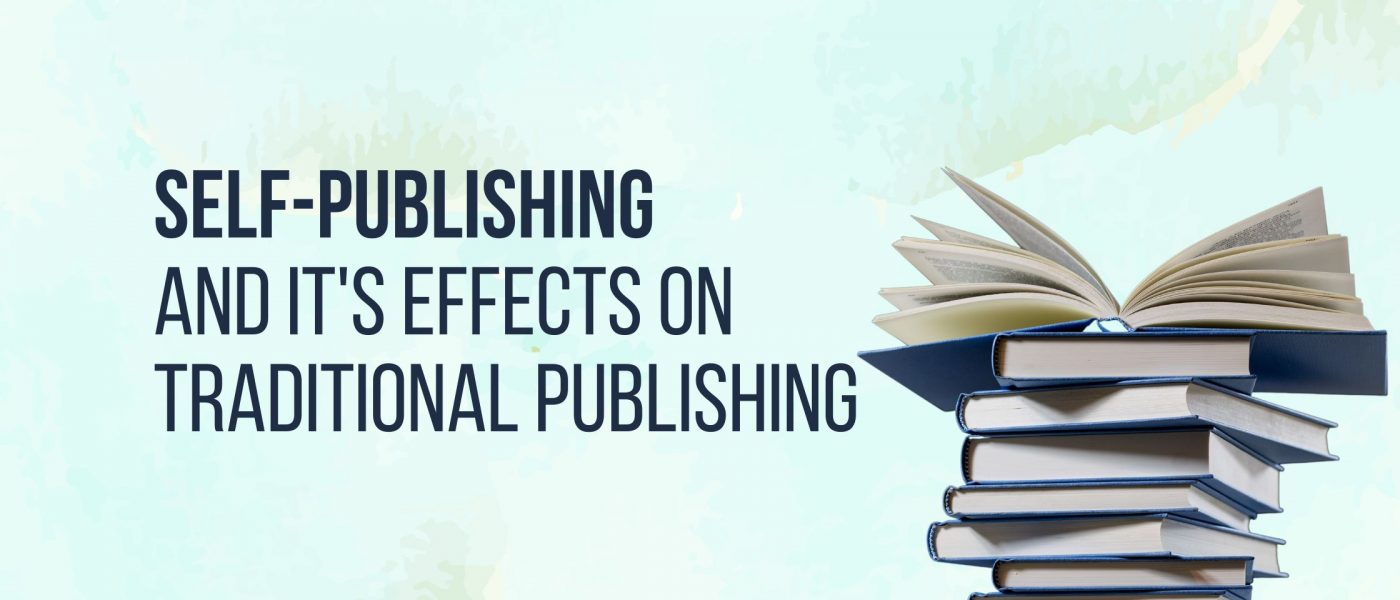The rise of self-publishing has changed the landscape of book publishing. There are many ways to publish books – through eBook publishers and print-on-demand publishers. Self-publishing offers the chance to directly connect with readers and offer them more choices than there was before. Which means that authors need to work harder than ever before to be heard by readers.
The rise of self-publishing has changed the landscape of book publishing
Self-publishing has been around for a long time. In fact, it’s been around since the invention of the printing press in 1450 and even before that when monks wrote manuscripts on vellum scrolls.
Self-publishing is now more accessible than ever before—you can do it yourself or with little to no help at all! It’s no longer just for authors who don’t want to get their hands dirty with marketing or selling their books in stores; today’s self-published author has many options available to them when it comes to getting their work out there (and making money).
The way traditional publishing works has changed as well: instead of being limited by geography or physical proximity between writers and publishers, writers can now publish from anywhere that has an internet connection and access to a printer/copier/scanner (or whatever else makes up these days). If you live in Los Angeles but dream of writing your own screenplay someday—you could!
There are now many ways to publish books, including through eBook publishers and print on demand publishers.
As the publishing world has evolved, there are now many ways to publish a book. You can self-publish your work through eBook publishers or print on demand publishers.
If you want to go the route of self-publishing, it’s important that you choose an author platform with which you feel comfortable and like working with. There are many companies out there that provide this service, but one thing is for sure: if someone wants their book published but doesn’t have access to traditional publishing options (and maybe even needs one), then it’s likely going to be easier than ever before!
Self-publishing offers the chance to directly connect with readers.
One of the best things about self-publishing is that it allows you to directly connect with your readers. You can interact with them on social media, get feedback on your book, and build a community around it.
In traditional publishing, there are many steps between writing and seeing your work in print: editing by an editor who knows what they’re doing; formatting by a designer; getting printed onto paper or made into an e-book; shipping all over the world (if applicable). All of these steps add time to the process. If someone wants something badly enough but doesn’t have access to traditional publishing opportunities because they don’t live near an established publisher or agent, then they may need to spend more money than planned if their book comes out late due to production delays caused by illness or other issues beyond their control.
The biggest benefit of self-publishing is the freedom to write what you want to write.
The biggest benefit of self-publishing is the freedom to write what you want to write. You can be more creative and make a book that reflects your true voice, something that might not have been possible if you were working with a traditional publishing house. You don’t have to worry about pleasing your editor or publisher, because there’s no one else involved in the process except for yourself (or perhaps two friends who proofread). And since each book is its own entity, you can release multiple titles at once or even go back and add content later on as needed!
Self-published authors also tend to be more prolific than their traditionally published counterparts—they’ve already learned how difficult it can be for an author with limited resources to produce quality work within such tight deadlines and tight budgets; why should we expect them not continue doing exactly what works best for them?
Readers have more options when it comes to choosing a book to read — which means that authors need to work harder than ever before to be heard by readers.
As readers continue to read more and more books, they are also becoming savvier about what types of content they want to consume. For example, readers are more likely than ever before to choose a book based on recommendations from friends or social media influencers. In fact, a recent study found that 72% of consumers who purchased an e-book also bought it because they saw it recommended on Facebook or Twitter!
Readers have more access to new authors and therefore more choice as well.
As a reader, you have more access to new authors and therefore more choice as well. In recent years, self-publishing has become increasingly common and accepted by the mainstream publishing community. With this increase in popularity comes an increased demand for books by new authors; however, traditional publishers still have a monopoly over the market when it comes to creating original content that is novel and unique enough to keep readers interested. This means that if you want your work published by a traditional publisher (or even printed), your chances of getting it done are slim at best—but with self publishing companies available online through platforms like Writat.com, there’s no reason why anyone should feel limited by their ability or desire for success!
Authors need to be aware of all available options for publishing, so they can find something that will be realistic for them and their goals.
As authors, you need to be aware of all available options for self-publishing a book. You should also have a clear idea of what you want to achieve with your book and how much money you can spend on it. If you don’t know what kind of manuscript will work best for your audience and why, then self-publishing might not be right for you!
You should consider the cost of publishing before starting any type of project like this one because some costs may not be covered by royalty payments from sales or other sources like crowdfunding campaigns hosted by platforms like Patreon or GoFundMe (which allow users who donate money directly back into these sites’ coffers). This means that if an author spends hundreds or thousands upon thousands on editing services or freelance writers/editors but still doesn’t see any return on their investment in sales revenue generated from their books then they’ll end up losing money overall – something no one wants happening!
Conclusion
Self-publishing is the future of book publishing. It offers authors more freedom and flexibility while also giving readers a more comprehensive range of options when it comes to reading. We hope that this article has helped you understand what these terms mean and how they can affect your writing career if you choose self-publishing as an option for getting your work out into the world.





